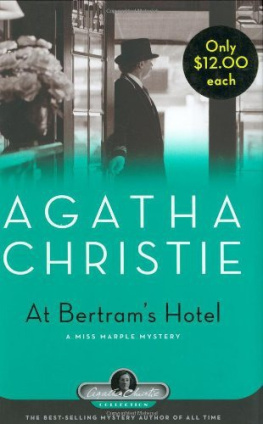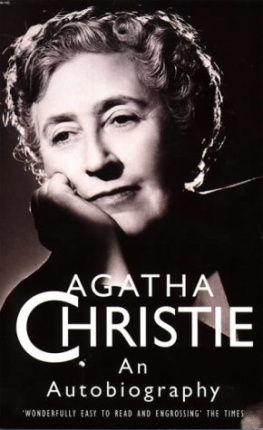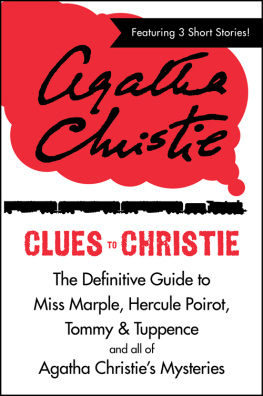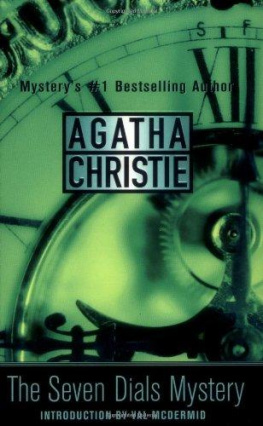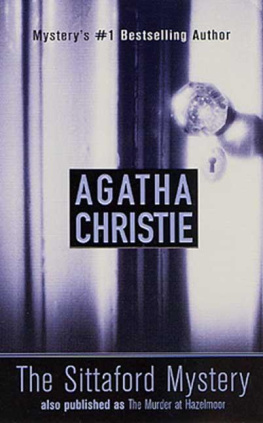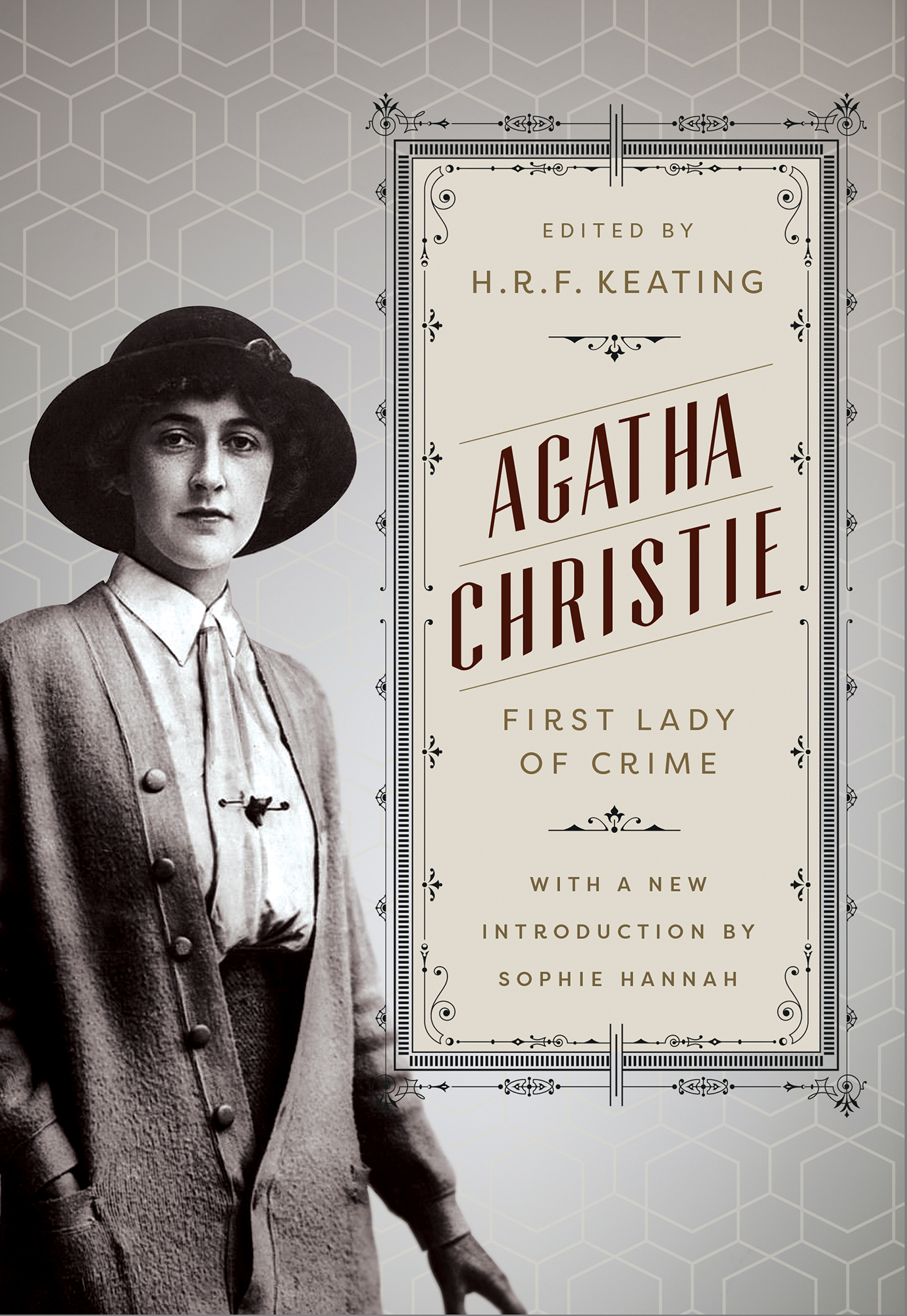Contents
Guide
Edited by H. R. F. Keating
Agatha Christie
First Lady of Crime
With a New Introduction by Sophie Hannah
Acknowledgments
All possible care has been taken in making acknowledgment for the use of copyright material in this book. If any owner has not been acknowledged the publishers apologize and will be glad of the opportunity to rectify the error.
Agatha Christie extracts reproduced by permission of HarperCollins Publishers Ltd. Come Tell me How You Live Agatha Christie 1946; Unfinished Portrait Agatha Christie 1934; Giants Bread Agatha Christie 1930; Murder at the Vicarage Agatha Christie 1930; The Road of Dreams Agatha Christie 1925
Introduction to the 2021 edition S OPHIE H ANNAH
Last year, I took part in a London festivals panel discussion of the work of Agatha Christie. On the panel with me were four other writers, all passionate Agatha fans. One by one, we described what we loved about her work and talked about how much she meant to us. Then it was time for the Q&A, and the questions we were asked by the audience were, by and large, the same ones Ive been answering on Agatha-themed panels since around 2011: why is she still the no. 1 bestselling novelist of all time? Is her work dated now or is she still relevant? Even though shes widely and rightfully regarded as a plotting genius, wouldnt the panel all agree that shes not actually a very good writer, in a literary sense? In fact, wouldnt the panelists agree that her prose style is wooden and her characters two-dimensional?
No, the panel would certainly not all agree. Or at least, I hoped they wouldnt. In my mind, I fiercely disagreed with both of those suggestions as soon as I heard them, and I expected that my fellow panelists would too. I was rather surprised when each of them offered a response that was a sort of compromise: yes, we adore her; yes, her books are addictive and ingeniously plotted but also, yes, we probably would not argue that she was the finest prose stylist or best novelist of all time.
I happened to be the last panelist to answer the question of whether or not Agatha was a good writer, beyond her plotting and storytelling abilities. This was a lucky coincidence, because when it was my turn to speak, what I said had the effect of a twist revealed at the end, as it were and what could be more appropriate for a panel about Christie? I heard a few shocked titters and saw a few raised eyebrows in the audience when I said, in a manner that I can only describe as peak-denouement-revelation-style, a more diplomatic version of this: Youre all gravely and heinously wrong! Anyone who suggests that Agatha Christies actual writing or prose style or novelistic ability is anything other than top-notch is a crazy fool! Not only is she a brilliant plotter and entertainer; she is also a writer of unparalleled excellence! No, not just a great storyteller actually a great writer in a literary sense! Like Virginia Woolf! Like Charles Dickens! Like Shakespeare!
Some audience members by now were on the edge of their seats. They had not expected anything like this to happen. Despite the event being a panel billed as a discussion about Christie featuring ardent Christie fans and no one else, the audience expected the normal formula: unanimous agreement that, despite her limitations as a writer, Christie was nevertheless a genius.
And there was I saying, Yes, she was a genius but, hang on, what limitations? Every novelist every creative artist of any sort has the limitations that they choose, of course. The art produced by the painter L.S. Lowry is limited in the sense that it contains absolutely no hedgehogs or giraffes. I used Lowry as an example in my answer on the panel that day, as a way in to talking about this common misconception in relation to Christie.
The fact that she wrote in a certain way, her chosen-on-purpose way, is used by some as evidence that she is not a good writer. Many say indeed, audience members and panelists that very day said that her characters are two-dimensional and flat, her prose style is wooden and simplistic. I pointed out that one might say that the people painted by Lowry were two dimensional and flat compared with those painted by John Singer Sargent, but that didnt mean Lowry was any less brilliant or talented a painter or that his work was lacking in artistic merit. In its way, his work is as rich and rewarding as that of Sargent and the same is true of Christie in relation to, for instance, Virginia Woolf.
Her style is not simplistic but, rather, beautifully simple. Her genius is such that she can write book after book that seamlessly blends many opposite ends of many spectrums: the straightforward and the complex, the light and the dark, the resolved and the ambiguous, the traditional and the revolutionary. She is brilliant at conveying depth of character in her own way: a brisk and crisp way that allows far more page space for plot than for introspection yet we learn every time that it is only by following the precise details of the plot, major and minor, that we are able, finally, to access the third dimension of each character, the part they keep hidden from the rest of the world and from the reader for as long as possible. Without plot, there is no reliable access to character; Christie understood this as well as anyone.
Theres a passage in The Murder at the Vicarage, the first Miss Marple novel, that I always recite to anybody who questions the depth of characterisation or psychological insight in Christies work. The vicars wife says to her husband, Agreeing to marry [you] made me feel so powerful The other suitors thought me simply wonderful, and, of course, it would have been very nice for them to have me. But Im everything you most dislike and disapprove of, and yet you couldnt withstand me! My vanity couldnt hold out against that. Its so much nicer to be a secret and delightful sin to anybody than to be a feather in his cap. I make you frightfully uncomfortable and stir you up the wrong way the whole time, and yet you adore me madly.
What if we were to regard Agatha Christies novel writing the complete package and all the elements contained therein as a style she chose and created on purpose rather than a limitation resulting from an inability to do better? What if we focused on what it did enable her to achieve rather than on what it prevented her from achieving which, we can reasonably assume, was something she wasnt aiming for in the first place? Wouldnt that be radical and refreshing? At the panel event, I asked the audience this question. Some, I could see, were tempted to think about Christie in this new and different way. One woman raised her hand and said, Ive never actually read Agatha Christie Ive only ever watched Poirot and Marple on telly but I dont think shes likely to be a proper literary genius like youre saying because everyone says shes not that good a writer and that shes just good at plot. If thats not true, why do so many people even people who love her work say shes not a properly good writer?
An excellent question. I had been wondering myself, since hearing my fellow panelists answers, how it was possible both to love and underestimate Christie simultaneously. And it was while I was thinking about this and wondering how to answer the question that I had a true moment of revelation. I felt a little like Poirot when he suddenly says, How could I have been so foolish and failed to see what was so obvious?


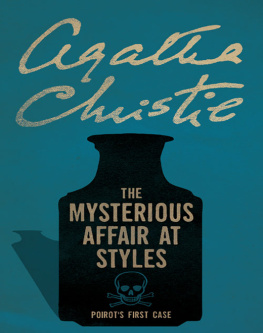
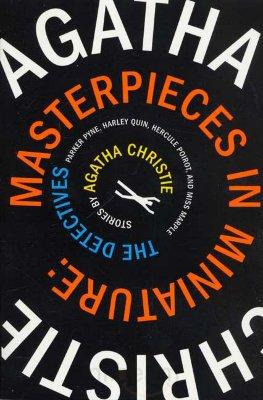
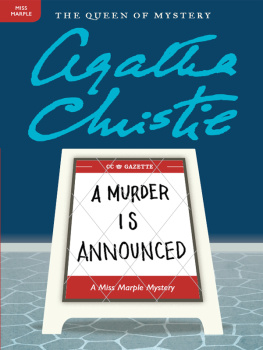
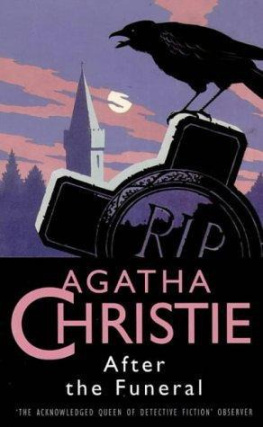
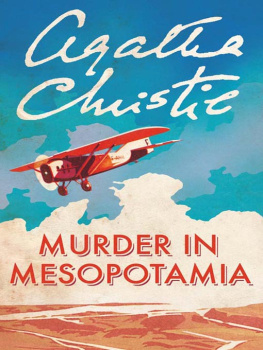
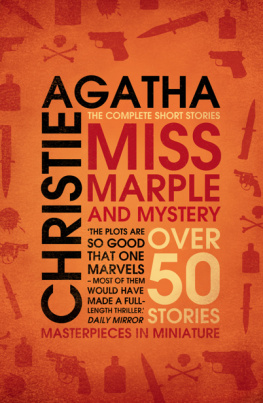
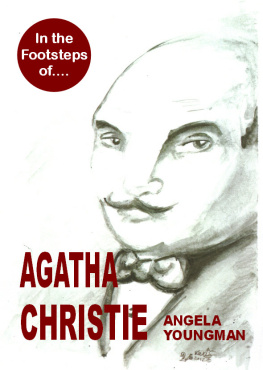

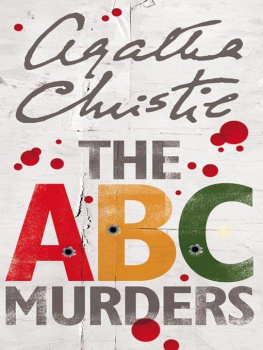
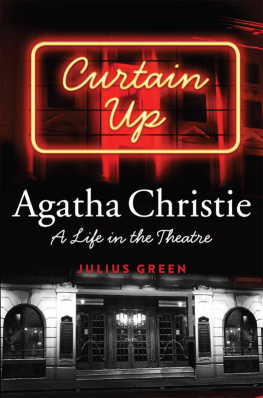
![Agatha Christie [Agatha Christie] - Problem at Pollensa Bay](/uploads/posts/book/140367/thumbs/agatha-christie-agatha-christie-problem-at.jpg)
